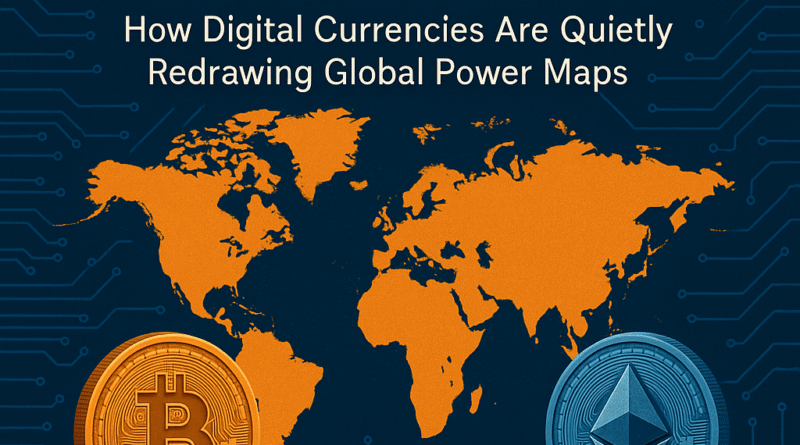CryptoCapitalism: How Digital Currencies Are Quietly Redrawing Global Power Maps – Gaza
In the shadows of traditional financial institutions and the glitz of Wall Street, a silent revolution is underway—one that is redrawing the global balance of economic power. Welcome to the era of CryptoCapitalism.
What is CryptoCapitalism?
It’s more than just a buzzword. It’s a new economic paradigm fueled by decentralized digital currencies like Bitcoin, Ethereum, and stablecoins. Unlike traditional capitalism, which relies on centralized control (banks, governments, regulators), CryptoCapitalism thrives in decentralized networks, peer-to-peer trust, and transparent protocols.
The Collapse of Monopoly Control
For decades, global finance has been monopolized by institutions like the Federal Reserve, IMF, and World Bank. But now, anyone with an internet connection can store value, transfer money, and invest—without intermediaries. This shift is especially transformative for countries facing sanctions, inflation, or unbanked populations.
Take Venezuela, for example. Faced with hyperinflation and a collapsing economy, many citizens turned to cryptocurrencies as a lifeline. Similarly, in Africa and Southeast Asia, mobile-based crypto wallets are leapfrogging traditional banking.
Digital Sovereignty is the New Independence
Nations are starting to realize that relying on the US dollar or SWIFT system is a vulnerability. That’s why countries like China have introduced their own Central Bank Digital Currencies (CBDCs), and others are exploring blockchain-based national currencies.
This isn’t just about tech—it’s about sovereignty. In the near future, the ability to control digital economic infrastructure may matter as much as having a strong military or natural resources.
The Role of DeFi and DAOs
Decentralized Finance (DeFi) has added fuel to the fire. Now, lending, borrowing, staking, and even governance can happen through code without human oversight. With DAOs (Decentralized Autonomous Organizations), communities are managing entire ecosystems without CEOs or governments.
This democratizes finance in ways we’ve never seen before—and it’s terrifying legacy institutions.
Will Crypto Rewire Global Alliances?
Here’s a radical idea: digital currencies may lead to new geopolitical blocs. Imagine a BRICS-backed stablecoin challenging the dollar, or an African crypto-union enabling intra-continental trade without foreign interference.
These shifts could fundamentally alter who holds power in the 21st century—and how that power is used.
Final Thoughts: The Quiet Revolution is Getting Louder
CryptoCapitalism isn’t just a financial movement. It’s a technological, political, and philosophical one. It questions the old guard and empowers the individual.
In this new world, code becomes law, trust is algorithmic, and economic freedom is borderless.
The question isn’t if this will change the world.
The question is: Are you ready when it does?

